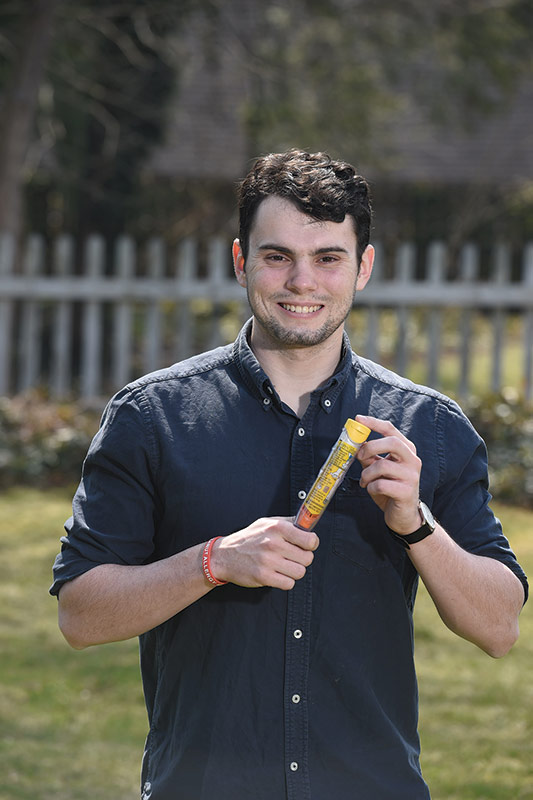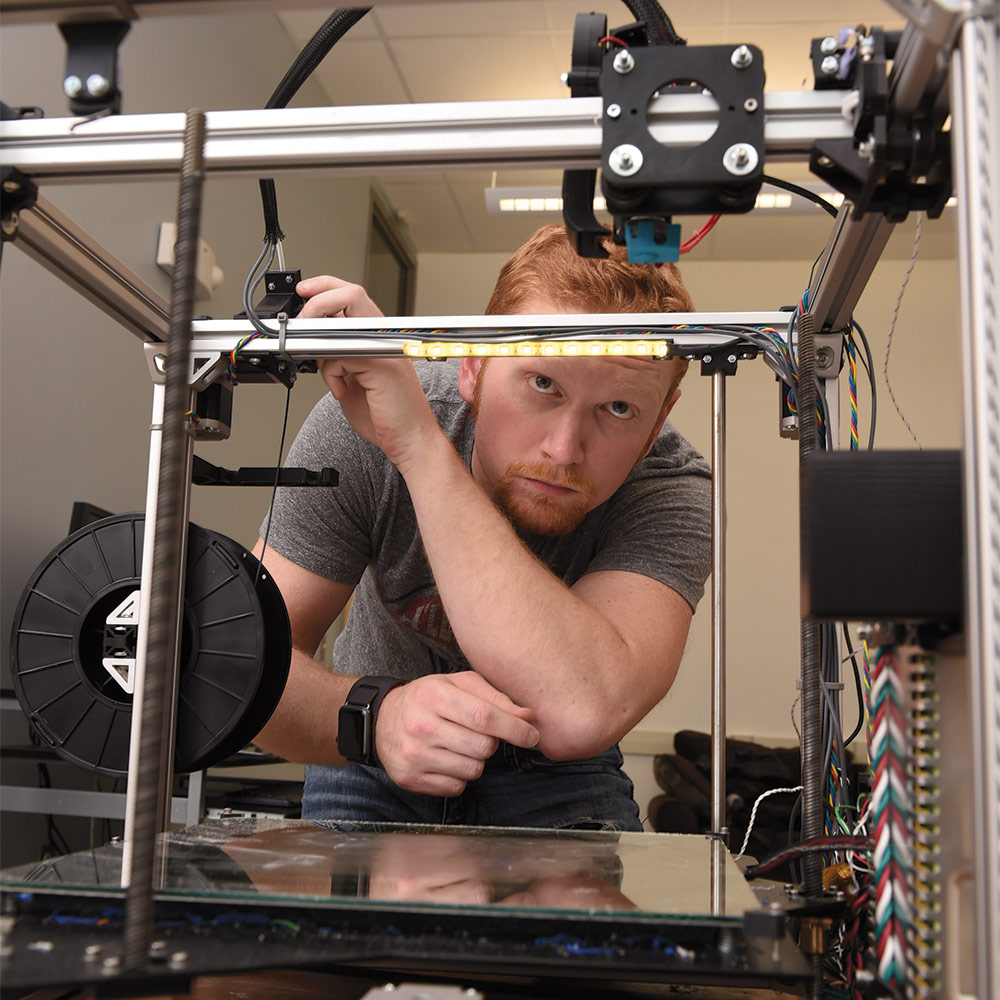Everyone who has a life-threatening allergy knows they must always carry an epinephrine autoinjector with them. The most common version is the EpiPen. EpiPens can inject epinephrine into the blood stream to reverse the allergic reaction. Even though I know how important having an EpiPen is, I have always been bad at remembering to bring it with me when I go places.
In fall semester 2016, I took a course called Entrepreneurial Creative Thinking, where the credo is “identify a problem, find a solution.” My problems? Forgetting to bring my EpiPen with me. My throat closing up during an allergic reaction, preventing me from calling for help. The medication inside the EpiPen overheating or freezing and thus becoming less effective. And the challenge of finding safe places to eat.
After identifying my problems I made sure the issues I face affected others in the food allergy community. I spoke to everyone I could find on campus who either had severe food allergies or cared for someone with this medical condition. I also spoke to my allergists, and Connie Peters, the nurse at Juniata’s Health and Wellness Center. The responses I collected showed me that my problems were universal.
However, I needed to confirm my findings on a larger scale. I conducted a 200-person survey among online support communities for people with food allergies. The results overwhelmingly showed that these problems were issues for the entire community. The next step: forming a solution.
When I was in ninth grade, I had addressed my trouble remembering my EpiPen by taping it to the back of my cell phone. This idea worked quite well at the time, but someone already invented duct tape, so no business opportunity there.
I decided to create a case for the device that synced to an app on smartphones via wireless connection. Whenever a person gets out of range of his or her autoinjector the phone will receive an alarm saying, “Retrieve the device.” Additionally, when the case is opened, the app sends a notification to pre-designated emergency contacts.
As I developed this new product, I discovered another company, Aterica, was in the process of developing a product that was similar in almost every way to my proposed product. Aterica had also planned to offer nearly identical service features. This was devastating. For around a week and a half I was miserable, wondering whether I should continue my business venture.
After researching the Aterica product, I realized that there was ample room for innovation and improvement. I can’t share exactly what this entails, but I am currently working on an improved version that offers the same value and features, and is more practical. I will be working with several students at the College and Penn State University to help bring this idea to market.
As we move forward in our research and development, we are open to working with Mylan, the company that produces the EpiPen, and Kaleo, the producer of the Auvi-Q (the second most popular auto injector).






